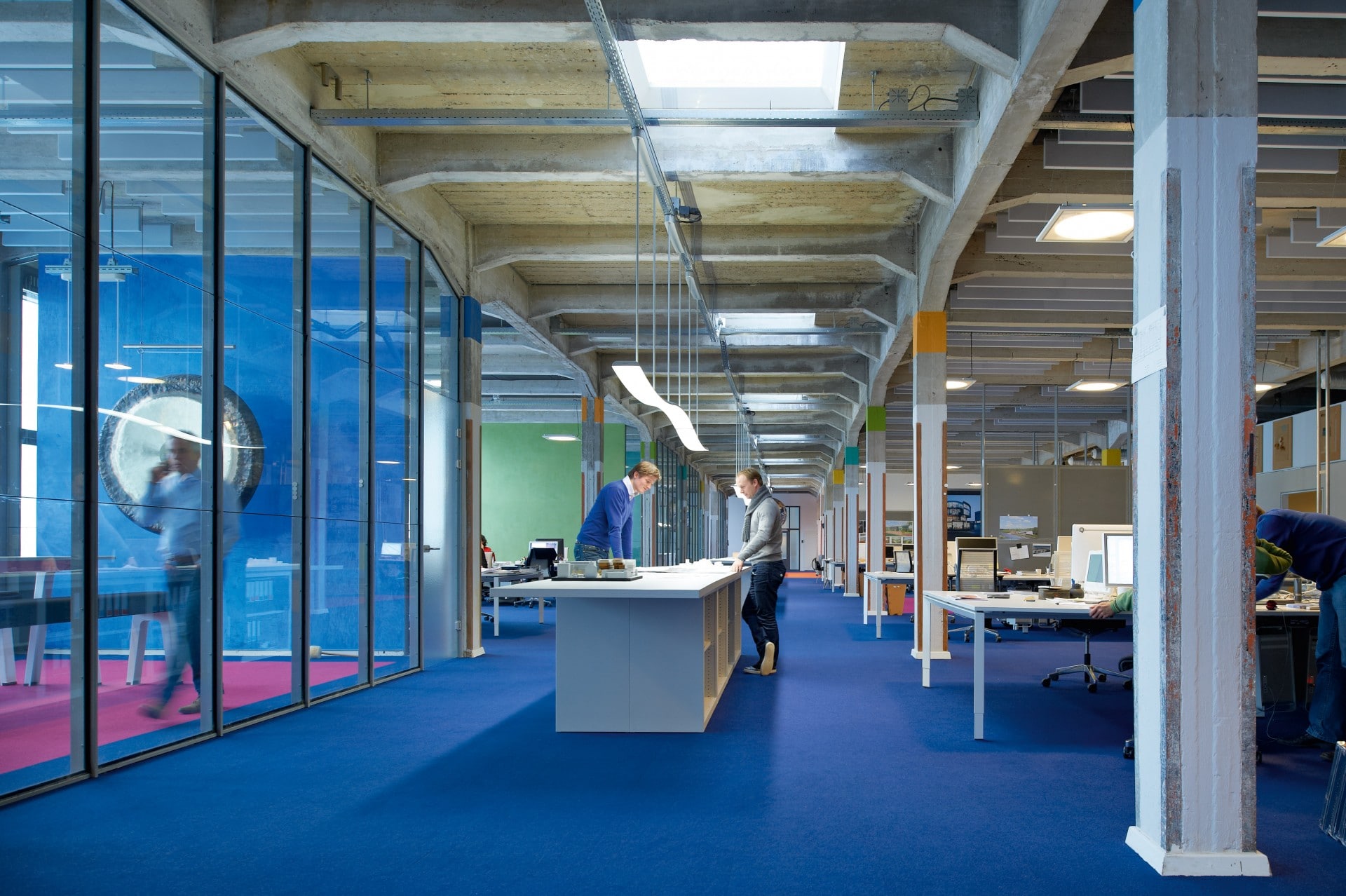Netherlands (Amsterdam)
What if your business didn’t have to buy any lamps or lights and could just pay for the light you consume – responsibly? That means no fitments, bulbs, LEDs, in fact, no need to actually own any lighting products at all. You wouldn’t even need to think about it.
This is the idea behind the ‘Pay-per-lux’ model. Pioneered by Philips CEO Frans van Houten and architect and circular economy visionary Thomas Rau (Turntoo), it applies lighting in a totally different way – as a service. “I told Philips, ‘Listen, I need so many hours of light in my premises every year. If you think you need a lamp, or electricity, or whatever – that’s fine’,” explains Rau. “’But I want nothing to do with it. I’m not interested in the product, just the performance. I want to buy light, and nothing else.’”
Philips’ ‘product-as-a-service’ business model is an indicator of how we might consume in the future, potentially making obsolete the traditional ‘make more and sell more’ model. By effectively combining circularity (in terms of resource use) with convenience for customers and profitability for the business – this is a big opportunity for people, planet and profit.
Business customers pay a regular fee for Philips to handle their entire lighting service – design, equipment, installation, maintenance and upgrades – only paying for light consumed – the ‘lux’. The long term plan is for it to be available for everyone.
The bespoke system saves upfront costs associated with installing energy-saving lighting. By planning for longevity rather than a ‘fit and forget’ approach, it provides the most efficient and cheapest lighting possible – which encourages the uptake of energy-saving lighting. At the end of the contract, products can be returned to the production process again, reusing the raw materials, optimising recycling and reducing waste.
The metro system in Washington DC was one of the first to sign up for this model, alongside the UK’s National Union of Students and the Netherlands’ RAU Architects: “We ended up creating a minimalist light plan that utilised the building’s natural sunlight as much as possible to avoid providing a surplus of material or energy,” explains Rau. “A combined sensor and controller system further helped us keep energy use to an absolute minimum, by dimming or brightening the artificial lighting in response to motion or the presence of daylight.”
From a business point of view, there had always been a major flaw in the LED model. How do you make money when your product lasts for decades? But as more efficient technology comes to market, Philips realised they can sell that to customers too.
In 2014 Fortune named Philips CEO Frans van Houten as one of the world’s 25 top ‘eco-innovators’, in recognition of pioneering this innovation. Today he heads the Philips’ initiative to deliver on the company’s stated goal of improving three billion lives per year by 2025.
Lighting is solving the energy equation under the leadership of Philips CEO Eric Rondolat. ►
Bio
This feature was created as a ‘Breakthrough Brief’ by Atlas of the Future for Project Breakthrough (United Nations Global Compact/ Volans).
Project leader
Frans van Houten, CEO, Philips
Support the Atlas
We want the Atlas of the Future media platform and our event to be available to everybody, everywhere for free – always. Fancy helping us spread stories of hope and optimism to create a better tomorrow? For those able, we'd be grateful for any donation.
- Please support the Atlas here
- Thank you!



